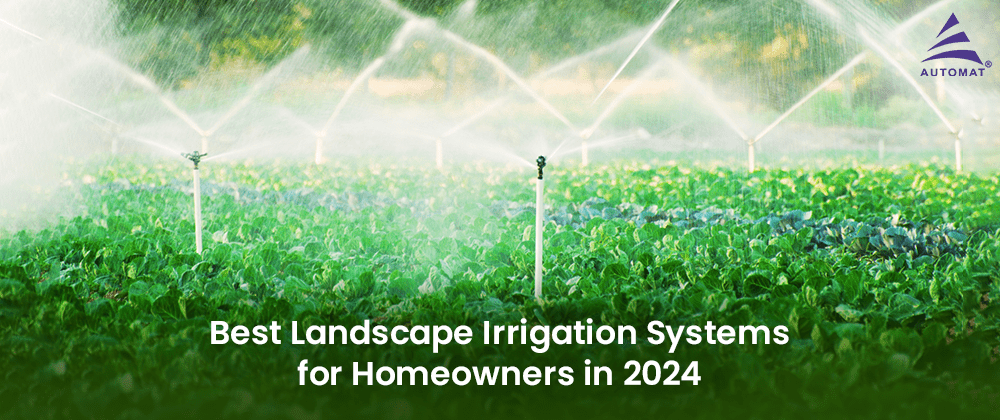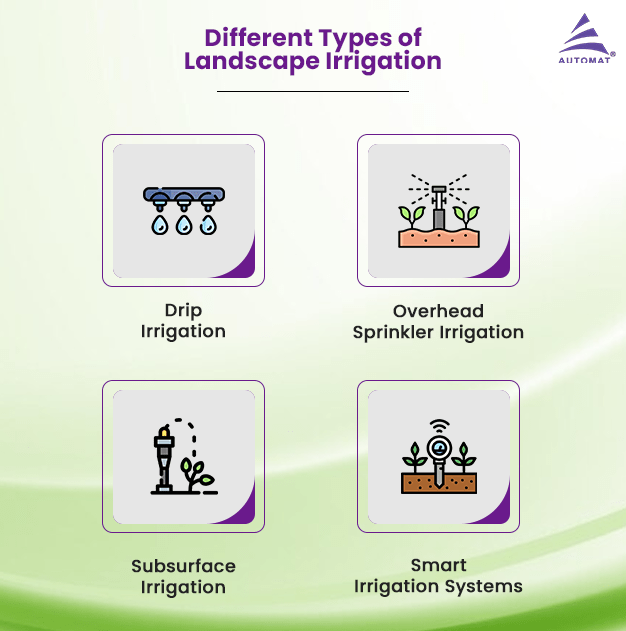 Beautiful outdoor spaces are more than just aesthetics; they’re an art form. Landscape design requires expertise in blending functionality with visual appeal. It is a carefully crafted process that transforms ordinary yards into breathtaking vistas. The foundation of successful landscaping lies in the right design, proper material selection, and, most importantly, an effective water irrigation system. This system ensures plants thrive, flowers remain vibrant, and the landscape flourishes year-round.
Beautiful outdoor spaces are more than just aesthetics; they’re an art form. Landscape design requires expertise in blending functionality with visual appeal. It is a carefully crafted process that transforms ordinary yards into breathtaking vistas. The foundation of successful landscaping lies in the right design, proper material selection, and, most importantly, an effective water irrigation system. This system ensures plants thrive, flowers remain vibrant, and the landscape flourishes year-round.
In this blog post, we will understand the importance of water conservation and strive to deliver sustainable irrigation solutions for all landscapes.
What is Landscape Irrigation, and Why is it Important?
While landscaping encompasses the overall design and modification of outdoor spaces, landscape irrigation specifically refers to the systems and practices used to deliver water to plants, trees, and other landscape features. Just as a well-designed landscape enhances the beauty and functionality of a space, a proper irrigation system is essential for ensuring the health and vitality of those plants.
Here’s a breakdown of landscape irrigation’s role in landscaping:
- Sustaining Plant Life: A consistent and adequate water supply is crucial for plant growth and development. Landscape irrigation ensures plants receive the water they need to thrive, especially in regions with limited rainfall or arid climates.
- Maintaining Aesthetics: A healthy landscape with vibrant plants and lush greenery is a key aesthetic goal. Proper irrigation prevents wilting, discolouration, and plant death, preserving the beauty of your outdoor space.
- Water Conservation: Modern irrigation systems deliver water directly to the target zone, minimizing evaporation and runoff. This targeted approach promotes water conservation, a growing concern in many areas.
- Efficiency and Convenience: Gone are the days of manually watering your entire landscape. Irrigation systems automate the watering process, saving time and ensuring consistent watering schedules. Smart irrigation systems take it further, adjusting watering based on real-time conditions for optimal efficiency.
Installing a good landscape watering system can make your outdoor space look great and healthy while saving water and managing resources responsibly.
The Role of Irrigation in Landscaping
Irrigation is the cornerstone of beautiful landscaping, ensuring that plants receive an adequate and consistent water supply for growth and development. It becomes particularly crucial in regions with erratic rainfall patterns or arid climates with limited natural water sources. Proper irrigation not only sustains plant health but also helps maintain the overall aesthetic appeal of the landscape by preventing wilting, yellowing, or drying out of plants. Moreover, water irrigation systems contribute to water conservation by delivering water directly to the targeted zone, minimizing evaporation and runoff. This efficiency is especially vital in areas facing water scarcity or restrictions on outdoor water usage. By adopting smart irrigation practices and technologies, landscapers can optimize water usage with these systems, reduce operational costs, and promote environmental sustainability.
Water Recycling and Landscape Irrigation
Incorporating water recycling systems alongside efficient irrigation practices can further enhance water conservation efforts in landscaping. Recycled or reclaimed water is wastewater that has undergone treatment to remove impurities and contaminants. While not suitable for drinking, recycled water can be a viable source for irrigation purposes. Treated wastewater can be delivered through dedicated purple pipes to irrigate landscapes, reducing the strain on freshwater resources.
Different Types of Landscape Irrigation

1. Drip Irrigation
Drip irrigation involves gradually applying water directly to the base of plants through a network of tubing and emitters. It’s highly efficient, minimizing water wastage and reducing the risk of weed growth and soil erosion. Drip systems can be customized to deliver precise amounts of water to different plant types, making them ideal for landscaped areas with diverse plantings.
Read More: The Ultimate Guide to Efficient Landscape Irrigation
2. Overhead Sprinkler Irrigation
Sprinkler irrigation utilizes overhead Impact and Micro sprinklers, spray heads or rotating heads to distribute water over a specified area. Spray heads / Sprinkler systems are suitable for lawns, flower beds, and large open spaces but are less efficient than drip irrigation due to increased evaporation and runoff. However, they offer convenience and coverage for areas with uniform water requirements, making them a popular choice for turf management in parks, sports fields, and golf courses. Rotor irrigation systems and sprinkler systems feature rotating heads that deliver water in a circular pattern, ensuring uniform distribution over larger areas. This makes them particularly effective for irrigating large expanses of turf grass, a crucial aspect of successful management.
3. Subsurface Irrigation
Subsurface irrigation involves burying irrigation lines or pipes beneath the soil surface to deliver water directly to the root zone. This method minimizes water loss through evaporation and runoff, promotes deeper root growth, and reduces weed proliferation. Subsurface systems are particularly beneficial for water-sensitive plants, sloped landscapes, and areas where surface irrigation isn’t feasible.
4. Smart Irrigation Systems
Smart irrigation systems integrate advanced technologies such as soil moisture sensors, weather forecasts, and remote-control capabilities to optimize water usage. These systems adjust watering schedules based on real-time environmental conditions, plant moisture requirements, and water restrictions, maximizing efficiency and minimizing waste. One study found that smart irrigation can increase plant height by 12.30%. Smart controllers enable users to monitor and manage irrigation remotely via smartphone apps or computer interfaces, enhancing convenience and control.
Conclusion
In landscaping, efficient irrigation serves as the lifeline that sustains the beauty and vitality of outdoor spaces. By understanding the diverse types of landscape irrigation and adopting appropriate solutions, landscapers can create thriving environments that captivate the senses while promoting sustainability and water conservation. Whether through drip systems, sprinkler irrigation, or smart technologies, the quest for efficient irrigation remains paramount in shaping landscapes that inspire and endure. Automat Industries stands as a trusted partner for those seeking best-in-class irrigation solutions. Automat’s high-quality solutions cater to every aspect of a micro-irrigation system, ensuring efficient water delivery and optimal plant growth. Whether you’re a landscape professional or a homeowner seeking a flourishing garden, Automat Industries empowers you to achieve your irrigation goals confidently.




